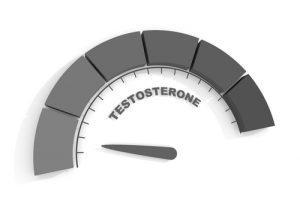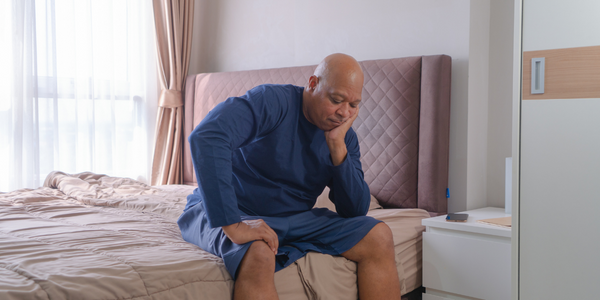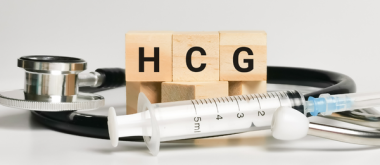One major question that urologists frequently respond to during routine visits amongst older men, is whether low testosterone levels can cause depression and anxiety.
While both men and women have testosterone hormones, it is important to note that men have a higher concentration of this hormone compared to females. In males, this hormone plays very key functions pertaining to sperm production, muscle strength, body fat distribution, and sex drive.
Like most hormones, these testosterone levels can fluctuate from normal levels to being low, or even higher, depending on a number of factors. Low testosterone levels, a common side effect of andropause, is known as hypogonadism, may lead to both physical and emotional symptoms, and depression and anxiety are among them.
Understanding the Cause of Hypogonadism
Hypogonadism may be a result of both primary and secondary factors which affect testosterone production. The primary factors may widely be as a result of an injury sustained by the testicles which are the sole organs responsible for its production. Cancer treatment or too much iron in the blood could cause injury to the testicles thereby leading to low production of this male hormone.
Secondary factors may be a result of the pituitary gland receiving insufficient signals to produce the necessary amounts of testosterone. This failure in signal transmission may be due to conditions such as obesity, tuberculosis, normal aging and the onset of andropause as mentioned above, and HIV/AIDS.
Low Testosterone, Depression and Anxiety

While a number of factors can contribute to low testosterone levels, likewise, these diminished levels can also result in a number of symptoms, including erectile dysfunction, weight gain, low libido, and changes in mood. When a man experiences erectile dysfunction, they are greatly affected in terms of their romantic life and emotional impacts are not far behind. The inability to react to the conjugal needs of their spouses has been found to lead to low self-esteem and even depression.
In the same manner, when a man starts to gain undesired weight, they may feel embarrassed, which can lead to social anxiety and withdrawal.
Research carried out in Toronto revealed that a large percentage of men who were found to be depressed also had low testosterone levels in their bodies.
As a way of confirming the relationship between low testosterone and depression, another research was conducted in Washington and it showed that more than 50 percent of the men who participated with borderline average testosterone levels were equally depressed.
In addition, an article published in Psychology Today revealed that men who haven’t had a history of depression were found to be experiencing depression as a result of low testosterone.
These studies help depict and confirm the direct relationship between testosterone levels and depression onset.
Signs of Hypogonadism and Mental Health
Although there is a correlation between low testosterone and depression, it is difficult to distinguish the symptoms of hypogonadism and those of other mental disorders and concerns. The symptoms associated with hypogonadism are majorly similar to various mental disorders and include: insomnia, anxiety, low concentration, memory problems, and fatigue.
Treating Hypogonadism and Ultimately Depression
Testosterone replacement therapy (TRT), in most cases, is the ideal solution when it comes to the management of both hypogonadism and depression, as this therapy does not present the side effects that would otherwise be seen from antidepressant use.
It is important to appreciate that studies are still ongoing to further establish the relationship between low testosterone and depression, however, the already conducted studies have shown that TRT is the best therapy for lowering depression and improving moods in cases of hypogonadism.
A study published in JAMA Psychiatry Journal focusing on 27 different clinical trials on testosterone with respect to depression showed that TRT gave positive results to patients who had low testosterone and were depressed.
From this research, it is evident that low testosterone can cause anxiety and depression. Therefore, it is important to always consult not only a psychologist but also a urologist whenever you start experiencing mental changes, to determine if hormonal shifts are the underlying culprit, before hormone levels have fluctuated too much and become harder to treat.





